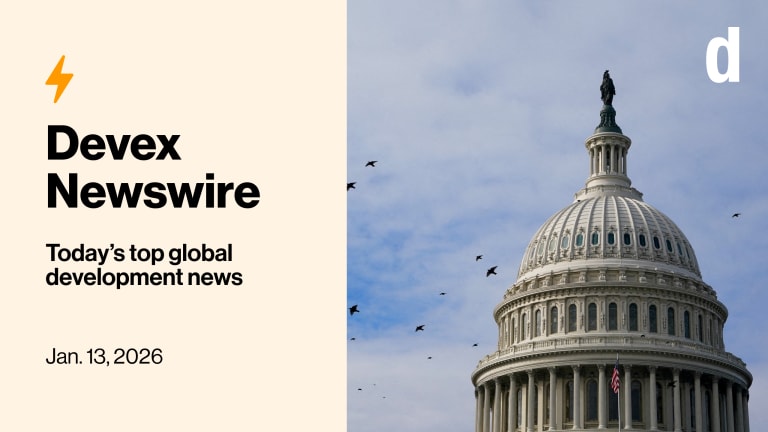U.S. foreign aid reforms begin to take shape, U.N. agencies combine forces for an urgent funding appeal, while Bill Gates and Bono make the case for development to a national security crowd. This week in development news.
United Nations leaders appealed for $4.4 billion to tackle escalating food security crises in Nigeria, South Sudan, Somalia and Yemen. Secretary-General António Guterres, United Nations Development Programme Administrator Helen Clark, and Emergency Relief Coordinator Stephen O’Brien held a joint press briefing Wednesday, durimg which they announced the combined appeal for funding by the end of March. The presence of all three U.N. leaders — and the coordination of their efforts in a joint strategy for the four food insecure countries — is intended to bridge the gap between immediate relief and long-term development. The number of people in urgent need of food assistance is 5.1 million in northeast Nigeria, 7.3 million in Yemen, and 2.9 million in Somalia, according to U.N. estimates. About 100,000 people are affected by the famine the U.N. declared in South Sudan, while another 1 million in the country face the risk of famine. On Tuesday UNICEF revealed that nearly half a million children in Yemen are dangerously malnourished and at risk of death. Logistical challenges and lack of access to conflict-affected areas have prevented humanitarian groups from waging an adequate response, Devex reported.
A Republican congressman from Florida plans to introduce a bill that would create an inter-agency mechanism to coordinate and enhance private sector participation in U.S. foreign assistance programs. Rep. Ted Yoho told Devex he plans to introduce the Economic Growth and Development Act in March — and he said he is confident the bill will win bipartisan support. “This will revolutionize how we give our foreign aid out, and you’ll see more of it transfer or move over to models like [the Overseas Private Investment Corp.] or [the Millennium Challenge Corp.],” Yoho told Devex. The proposal — similar versions of which have been floated before — comes at an uncertain time for some U.S. agencies working at the intersection of business and development. Both the U.S. Export-Import Bank and OPIC have found themselves in the budgetary crosshairs of Republican lawmakers who want to cut government bureaucracy. This week Devex reported on the fight to reauthorize OPIC, the U.S. development finance agency, which supports private investment in developing countries and returns money to the U.S. treasury.








